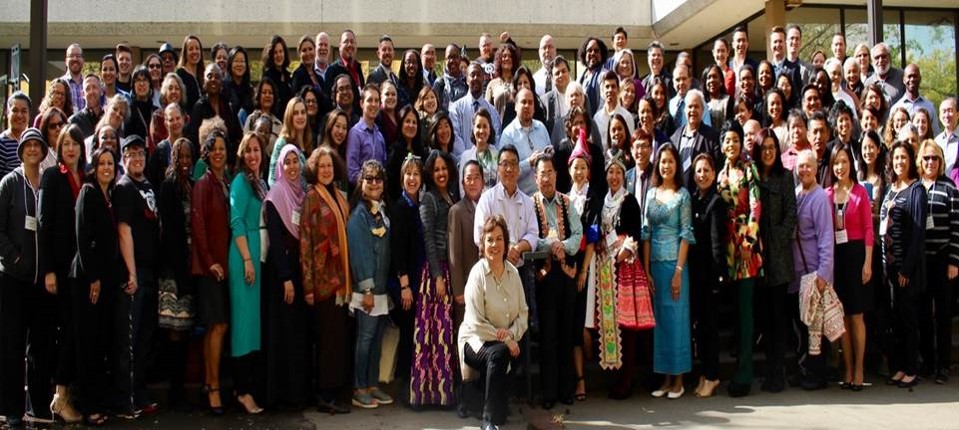California Reducing Disparities Project
In response to former U.S. Surgeon General David Satcher's call for national action to reduce mental health disparities, the former Department of Mental Health (DMH), with support from the Mental Health Services Oversight and Accountability Commission (MHSOAC), the California Mental Health Directors Association (CMHDA) and the California Mental Health Planning Council (CMHPC), created a statewide policy initiative to identify solutions for historically unserved, underserved, and inappropriately served communities. Under the Office of Health
Equity, this statewide Prevention and Early Intervention effort, the California Reducing Disparities Project (CRDP), focuses on five populations:
- African Americans
- Asians and Pacific Islanders (API)
- Latinos
- Lesbian, Gay, Bisexual, Transgender, Queer, and Questioning (LGBTQ)
- Native Americans
Now in Phase II, the CRDP is focused on funding and evaluating the promising practices identified in Phase I, as well as advancing the strategies outlined in the CRDP Strategic Plan. There has not been a project of this scope before; one that recognizes and elevates community practices and identifies strategies for systems change. Throughout this process, California will present this work on the national stage so that other states can learn from our efforts. In all CRDP awarded $60 million to 42 contractors and grantees over six years. The CRDP is funded by the Mental Health Services Act (Proposition 63) that was passed in November 2004. This act imposes a one percent income tax on personal income in excess of $1 million.
Learn More about Mental Health Services Act funded projects at CDPH including funding allocations.
CRDP Phase I
CRDP Phase 1 (2009-2018) focused on development of a CRDP strategic plan, along with population reports from each of the project's five populations.
Strategic Plan to Reduce Mental Health Disparities
The Strategic Plan to Reduce Mental Health Disparities, was developed for the California Department of Public Health by California Pan-Ethnic Health Network (CPEHN), alongside our partners representing diverse populations in California, as a community-driven and community authored document that provides a roadmap for reducing mental health disparities in unserved, underserved, and inappropriately served communities.
Go to the CPEHN Website or click a link below to download the report and executive summary. The executive summary is translated in Simplified Chinese, Spanish, and Vietnamese.
CRDP Executive Summary (PDF) (English).
CRDP Executive Summary (PDF) (Chinese).
CRDP Executive Summary (PDF) (Spanish).
CRDP Executive Summary (PDF) (Vietnamese).
California Reducing Disparities Project: Strategic Plan to Reduce Mental Health Disparities (PDF) (English).
Population Specific Needs Assessment and Recommendations Reports
The five population reports were developed by community stakeholders through a population specific needs assessments meant to capture access, and availability of mental health services, needs, and recommendations to address disparities in mental wellness for each population. These reports synthesize findings from community surveys, focus groups and town halls and elevate the voice of community in development of programming to meet their needs.

CRDP Phase II
Focuses on providing funding to implement practices and strategies identified in CRDP Phase I in order to demonstrate community-defined evidence to reduce mental health disparities. CRDP Phase II has awarded 42 grants and contracts in the areas of Statewide Evaluation, Technical Assistance Providers, Implementation Pilot Projects, and Education, Outreach, and Awareness.
Statewide Evaluation Consultant contract
The purpose of the evaluation is to assess the overall effectiveness of CRDP Phase II to identify and implement strategies addressing mental health disparities and to demonstrate the effectiveness of CDEPs in reducing mental health disparities in the five priority populations using community based participatory research methods.
Psychology Applied Research Center @ Loyola Marymount University
Technical Assistance Provider contracts
Five population-specific Technical Assistance Providers (TAPs) work with Pilot Projects to develop their administrative, programmatic and evaluation capacities. They also help Pilot Projects improve operations, identify and secure additional resources and build strategic partnerships to better serve communities. The following is the list of the TAPs:
African American Technical Assistance Provider – ONTRACK Program Resources
Asian & Pacific Islander Technical Assistance Provider – Special Services for Groups
Latino Technical Assistance Provider – UC Davis Center for Reducing Health Disparities
LGBTQ Technical Assistance Provider – Center for Applied Research Solutions
Native American Technical Assistance Provider – Pacific Institute for Research and Evaluation
Implementation Pilot Project contracts
Thirty Five Pilot Projects across seven populations are implementing and evaluating Community Defined Evidence Practices (CDEPs) which provide culturally and linguistically competent prevention and early intervention mental health services to members of CRDP priority populations.
African American Population Implementation Pilot Projects:
- California Black Women's Health Project—Los Angeles County
- Catholic Charities of the East Bay—Alameda County
- Healthy Heritage Movement—Riverside County
- Safe Passages—Alameda County
- The Village Project, Inc.—Monterey County
- West Fresno Health Care Coalition—Fresno County
- Whole Systems Learning—Los Angeles County
Asian and Pacific Islander Population Implementation Pilot Projects:
- Cambodian Association of America—Los Angeles County
- East Bay Asian Youth Center—Alameda County
- HealthRIGHT 360—San Mateo County
- Hmong Cultural Center of Butte County—Butte County
- Korean Community Services—Orange County
- Muslim American Society: Social Services Foundation—Sacramento County
- The Fresno Center—Fresno County
Latino Population Implementation Pilot Projects:
- Health Education Council—Yolo County
- Humanidad Therapy and Education Services—Sonoma County
- Integral Community Solutions Institute—Fresno County
- La Clínica de la Raza, Inc.—Alameda County
- La Familia Counseling Center, Inc.—Sacramento County
- Latino Service Providers—Sonoma County
- Mixteco/Indígena Community Organizing Project—Ventura County
LGBTQ Population Implementation Pilot Projects:
- The Center for Sexuality and Gender Diversity—Kern County
- Gender Health Center—Sacramento County
- Gender Spectrum—Alameda County
- LGBTQ Connection—Napa County
- Openhouse—City and County of San Francisco
- San Francisco Community Health Center—City and County of San Francisco
- San Joaquin Pride Center—San Joaquin County
Native American Population Implementation Pilot Projects:
- Friendship House Association of American Indians, Inc.—City and County of San Francisco
- Indian Health Center of Santa Clara Valley—Santa Clara County
- Indian Health Council, Inc.—San Diego County
- Native American Health Center—Alameda County
- Sonoma County Indian Health Project—Sonoma County
- Two Feathers Native American Family Services—Humboldt County
- United American Indian Involvement, Inc.—Los Angeles County
Education, Outreach, and Awareness (EOA) Consultant contract
This consultant implements components of the CRDP Strategic Plan and demonstrates how CRDP is designed to better address the needs of unserved, underserved, and inappropriately served communities through storytelling, media training, media consulting services, and partnership development.
California Pan-Ethnic Health Network (CPEHN)
Cultural Broker contract
The purpose of this contract is to support the Office of Health Equity staff and California Reducing Disparities Project Implementation Pilot Projects as a CRDP Cultural Broker by developing reports, county engagement plan and presentations, and conducting education briefings with key policy makers as they relate to mental health equity for the vulnerable communities of California.
Racial Ethnic Mental Health Disparities Coalition (REMHDCO)

For more information about the CRDP, please email ohe@cdph.ca.gov